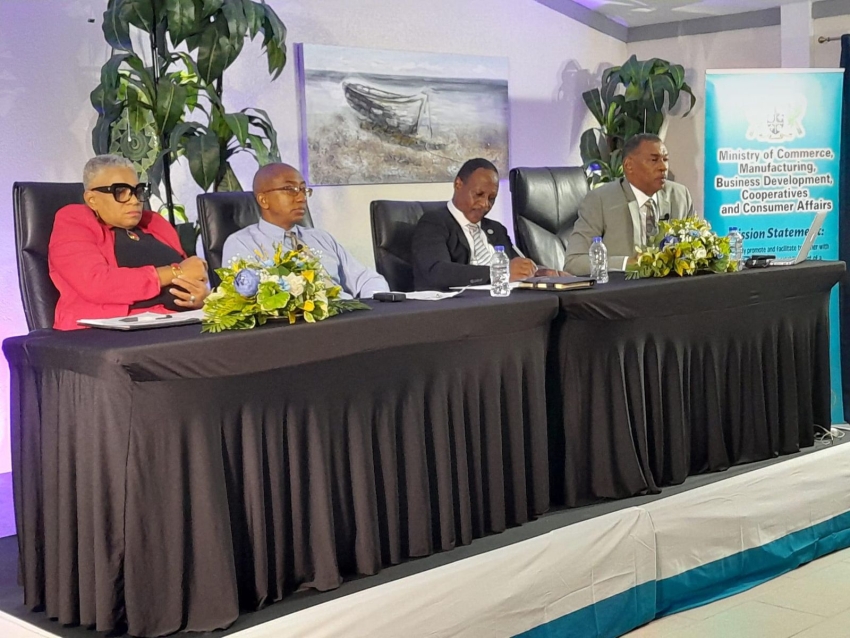The Ministry says the initiative allowed both business people and consumers to voice their concerns about the current cost of goods and services. This sensitisation campaign also comes at a time when the government has implemented a 2.5% Levy for national security and healthcare.
One issue lamented was the cost of foodstuffs globally, which would be passed onto the consumer in Saint Lucia. To that end, citizens are urged to eat locally-grown food.
“We need to look towards indigenous foods. If we do not do that, then, frankly, [food security initiatives] will run into a challenge in the medium term because the fundamental aggregate demand is not there,” said Joseph Cox, CARICOM’s Assistant Secretary-General for Economic Integration. Cox says many locals have the “taste” for imported food items, as opposed to eating what is grown on-island.
Globally, food prices have increased by the most margin since 1990. The Food and Agriculture Organisation's (FAO) food price index, which tracks international prices of the most globally traded food commodities, averaged “143.7 points in 2022, up 14.3% from 2021, and the highest since records started in 1990.”
Executive Director of the Chamber of Commerce, Brian Louisy, says a notable concern is the food imported for visitors to eat. Louisy notes while Saint Lucians may eat what is grown locally, feeding tourists can continue to result in a high food import bill.
“How much of that food import bill goes to feeding the local population? We have 180,000 people but we’re feeding a million tourists every year. We have to bring in 5 times as much food. So if we start producing what we eat, are we producing what the tourists eat?” he observes. One solution, Louisy outlined, is providing tourists with substitutes for what they are accustomed to eating.
Commerce Minister Emma Hippolyte says the suggestions made by the panellists at the discussion will be taken into consideration by the government.
“It’s one thing to make a recommendation. Then we have to analyse the recommendation in terms of the impact on the economy - how is it going to impact the government’s treasury and the fiscal impact of the government? As a government, one of the things that we said very clearly when we came in is that we are putting the people first,” Minister Hippolyte explained.
With the increase of goods, the government has placed essential items, like sanitary products, under price control. In other cases, citizens have been urged to buy what they need.


